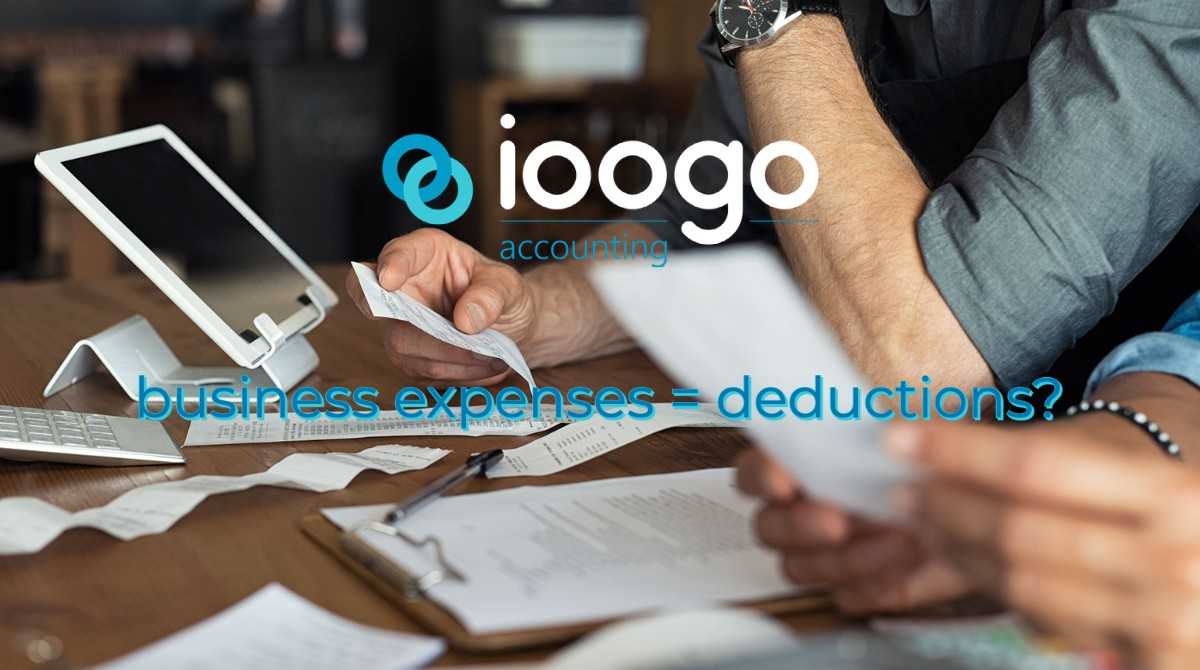Business tax deductions can have a significant impact on the amount of taxes you owe but there are a few compliance rules you must follow. According to the IRS, expenses must be “ordinary and necessary” for your trade. Luckily, the IRS considers many expense categories ordinary and necessary, let’s break them down.
What types of expenses can I claim as a tax deduction?
There are countless business expenses that you claim to bring your taxable income amount lower. The examples below apply to all sizes of business, and are especially important if you’re a small business owner trying to learn more about tax management. As you review the categories below, consider setting up your bookkeeping organization with the corresponding buckets to help you stay organized!
Costs of Goods Sold + Sales Tax
Are you selling a physical product? Then this expense should be at the top of your list! The cost of goods sold is deducted from gross receipts to calculate gross profit. The cost of goods sold includes the cost inquired to purchase the goods, storage and associated labor costs. If the customers were charged sales tax, that should be deducted as well.
Salaries and wages
If your company employs people, either full-time or part-time, the wages you pay them are eligible for a deduction on your taxes. What doesn’t apply is any salary you pay yourself if you are set up as an LLC or sole proprietor.
Benefits
Along the same lines of salaries and wages, employee benefits are also eligible for deductions. Eligible benefits can include health care expenses, life insurance, fringe reimbursements, profit sharing, bonuses, education and more.
Capital expenses
Capital expenses refer to any amount spent on upgrading the company’s current assets. This can include equipment, vehicles or even physical buildings. All of these are tax-deductible and since they are usually larger purchases, the cost could significantly help reduce your business taxable income.
Business loan interest
Did you take out a business loan in 2020, either to make it through the pandemic or grow your company? Track the amount of interest you paid on the loan and deduct it from your taxable income.
Business operating costs
We’re talking about the physical things it takes to run your business. Business operating costs can include rent, utilities, maintenance and professional services like hiring an IOOGO Accountant.
Advertising and marketing
Advertising is a strong way to create business growth and even if you’re new to the practice, it can feel less risky when you’re able to deduct the associated costs from your taxable income. Expenses you can deduct are hiring a marketing consultant, running social media ads, paying for an email newsletter service or printing flyers.
Business insurance
You’ve got to have it, so why not deduct it!
Startup costs
If you’re new to business and your startup costs are less than $50,000 you can claim up to $5,000 for startup costs and $5,000 for organizational costs in the first year of business. Types of eligible fees could include your business plan, advertising, research expenses, technology, employee expenses LLC setup costs and more.
Unconventional expenses you can claim
We have covered the main expenses you should be deducting from your taxable income as a business owner, but what about nitty-gritty expenses that can add up over time? These tax deduction eligible expenses can include Internet, phone, mileage, postage, work opportunity tax credit like hiring a military veteran, equipment rental, maintenance, credit card processing fees and more.
Self-employed professionals
Self-employed professionals may qualify for a few more unconventional deductions. Self-employment tax is the biggest one to note here. The traditional self-employment tax rate is 15.3% and you get to deduct half of these costs from your net income.
Here are a few of the top deductions you might want to claim:
- Home office expenses: These expenses include the cost for your office, even when you work from home. They can also cover a portion of your homeowners insurance, mortgage interest, utilities, phone and Internet etc. The IRS offers both standard and itemized deductions for these expenses.
- Health Insurance: If you’re self-employed, then you know first hand how expensive health insurance policies can be, be sure to add this to your deduction list.
- Travel: We’re adding travel to the list with wishful thinking that business travel will become the norm again. When you have to travel for work, keep track of your receipts so you can factor in accommodations, transportation, meals and other related expenses.
- Retirement: At a traditional job, retirement is already taken out of your paycheck tax-free. If you’re self-employed or a freelancer, you’ll want to ensure you have the same benefit. Be sure to keep up with maximum contributions as set by the IRS, they tend to change often!
Carryover from previous years
Lastly, no matter what tax deductions you decide to collect and submit on your business tax return this year, there may be limits associated with specific categories. It’s important to know what these limits are and track any overflow you have so you can claim any leftover expenses on the following year’s tax return. Charitable contributions and capital losses are among the most popular carryovers. If your company experiences a net operating loss (NOL), when taxable deduction expenses exceed revenue, you can either collect a tax return or carry over the remaining amount to reduce your taxable income in future years.





